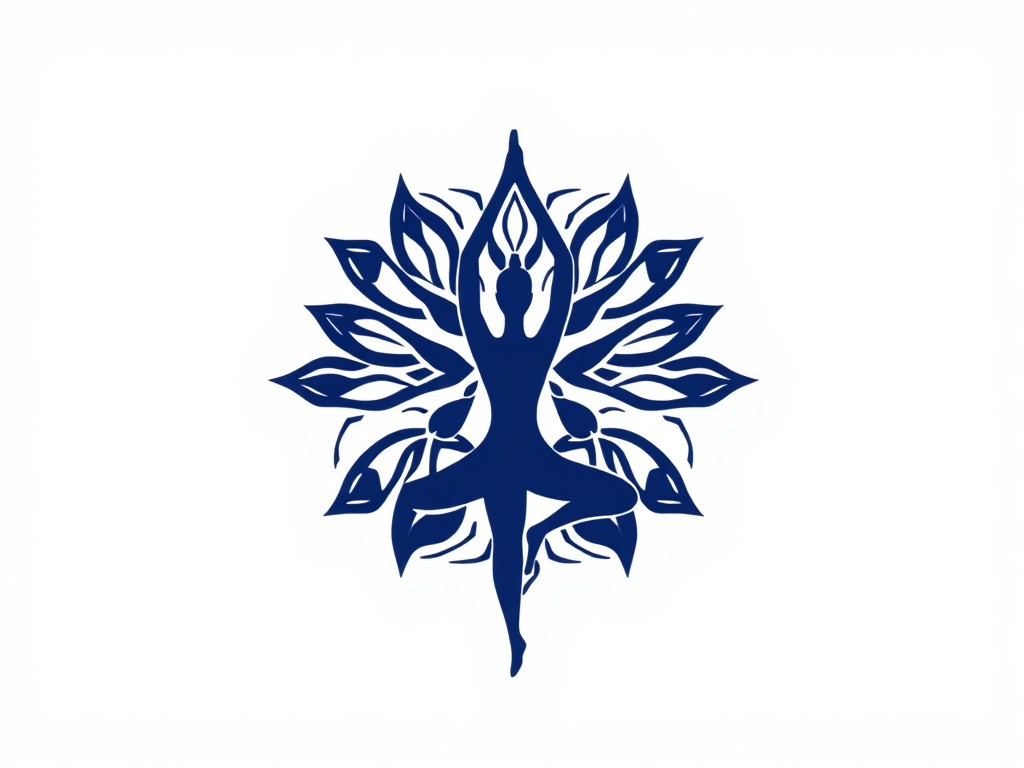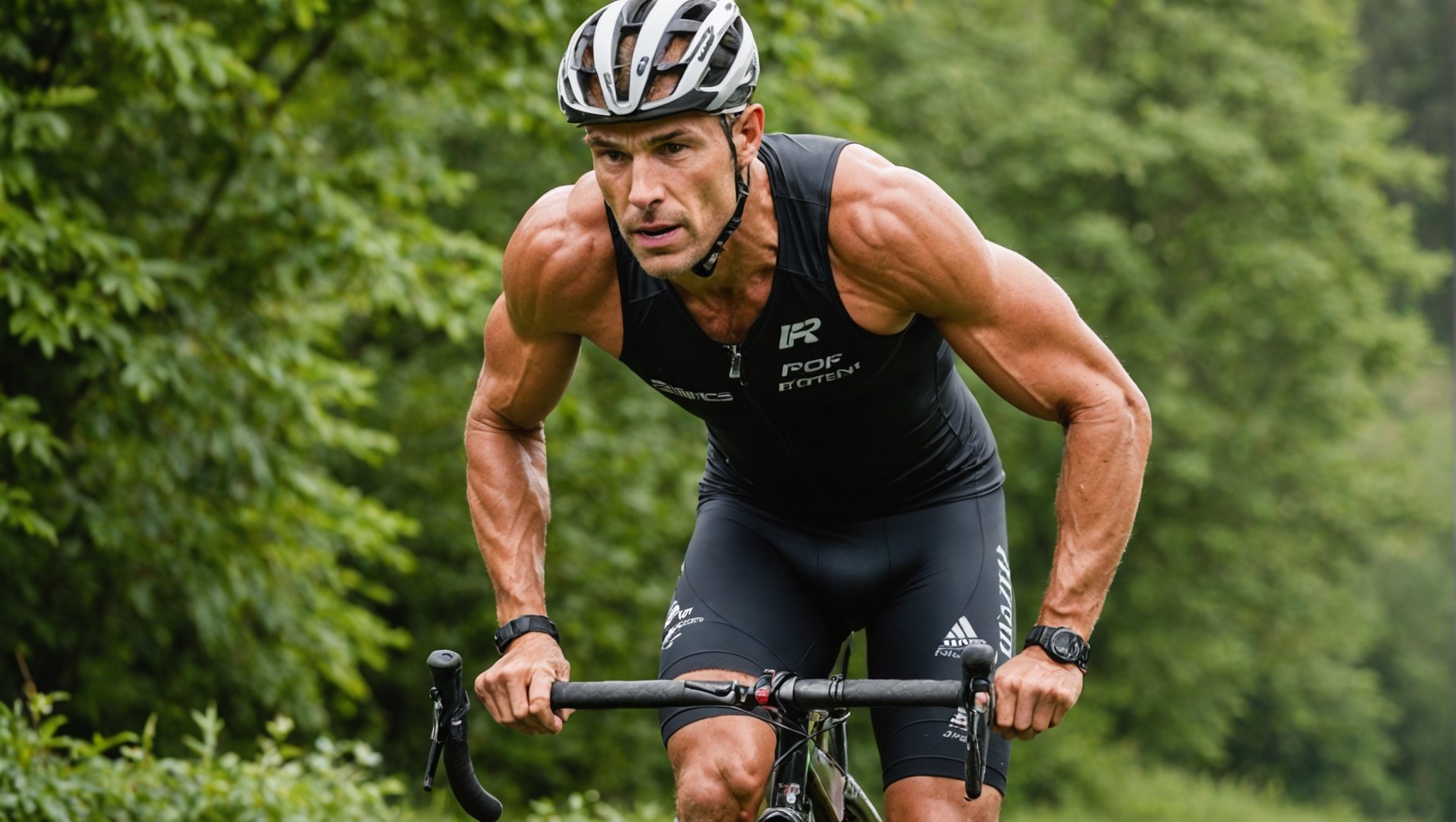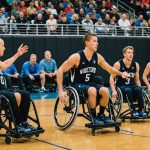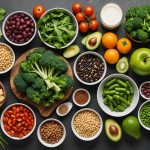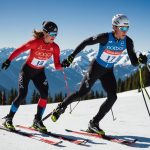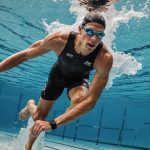Unlocking Optimal Muscle Recovery: The Ultimate Protein Choices for Post-Triathlon Success
Understanding the Importance of Recovery in Triathlon Training
When it comes to triathlon training, the focus often lies on the intense workout sessions, the meticulous training plans, and the strategic race day preparations. However, one of the most critical yet often overlooked aspects is recovery. Recovery is not just a passive process; it is an active component that requires careful planning, especially when it comes to nutrition.
After a high-intensity event like a triathlon, the body is in a state of significant stress. Muscle fibers are damaged, energy stores are depleted, and the body’s inflammatory response is triggered. To bounce back stronger and faster, athletes need to prioritize recovery nutrition, with a particular emphasis on protein.
Additional reading : Unleashing Athletic Potential: The Vital Role of Vitamin D in Enhancing Performance
The Role of Protein in Muscle Repair and Recovery
Protein is the cornerstone of muscle repair and recovery. Here’s why:
Muscle Damage and Repair
During a triathlon, especially the high-intensity segments like the bike and run, muscle fibers undergo micro-tears. Protein provides the necessary building blocks (amino acids) to repair and rebuild these fibers. This process is crucial for muscle growth and strength, which are essential for long-term endurance performance.
This might interest you : Unlocking Performance: Leveraging Biofeedback for Enhanced Training and Recovery in Athletes
Protein Intake Timing
The timing of protein intake is as important as the quantity. Consuming protein within 30-60 minutes after a workout, known as the “anabolic window,” helps in maximizing muscle repair and recovery. This is because the body is most receptive to nutrient uptake during this period, allowing for efficient muscle protein synthesis.
Choosing the Right Protein Sources
Not all proteins are created equal, especially when it comes to post-triathlon recovery. Here are some of the best protein sources and why they stand out:
Whey Protein
- Fast Absorption: Whey protein is quickly absorbed by the body, making it ideal for immediate post-workout recovery.
- High Bioavailability: It contains all essential amino acids, which are vital for muscle repair.
- Convenience: Whey protein powders are easy to consume and can be mixed with water or other beverages for a quick protein boost.
Casein Protein
- Slow Release: Casein protein is absorbed more slowly, providing a sustained release of amino acids over several hours.
- Nighttime Recovery: It is often recommended before bedtime to support muscle recovery during sleep.
- Muscle Satiation: Casein can help keep you feeling fuller for longer, which is beneficial for athletes managing their body weight.
Plant-Based Proteins
- Pea Protein: High in branched-chain amino acids (BCAAs), pea protein is hypoallergenic and easy to digest.
- Rice Protein: Another easily digestible option, rice protein is a good choice for athletes with sensitive stomachs.
- Soy Protein: Rich in all essential amino acids, soy protein is a complete protein source that supports muscle growth and repair.
Practical Protein Intake Strategies for Triathletes
Here are some practical tips to help triathletes optimize their protein intake for recovery:
Post-Workout Shake
- Combine Carbs and Protein: A mix of carbohydrates and protein (e.g., 20-30 grams of protein with 30-40 grams of carbs) helps in replenishing energy stores and initiating muscle repair.
- Example: A post-workout shake with whey protein, banana, and almond milk.
Meal Planning
- Balanced Meals: Ensure that each meal includes a source of protein, carbohydrates, and healthy fats. For example, grilled chicken with quinoa and vegetables.
- Snacking: Include protein-rich snacks like Greek yogurt with nuts or a handful of almonds and dried fruits.
Hydration and Electrolytes
- Hydration: Adequate hydration is crucial for protein absorption and overall recovery. Make sure to drink plenty of water throughout the day.
- Electrolytes: Include electrolyte-rich foods or supplements to help replenish what is lost during intense workouts.
Additional Recovery Strategies Beyond Protein
While protein is a key component of recovery, it is not the only factor. Here are some additional strategies to enhance overall recovery:
Strength Training and Yoga
- Strength Training: Incorporating strength training into your workout routine can help build resilience and reduce muscle damage during events. Simple Endurance Coaching emphasizes the importance of lifting heavy things to build strength.
- Yoga: Yoga can improve flexibility, reduce muscle soreness, and enhance overall recovery. Many coaching services, like Simple Endurance Coaching, include yoga as part of their recovery programs.
Active Recovery and Cold Water Immersion
- Active Recovery: Engaging in low-intensity activities like cycling or swimming can help promote blood flow and aid in the removal of waste products from the muscles.
- Cold Water Immersion: This technique has been shown to reduce inflammation and cell stress responses in skeletal muscle after resistance exercise, although its effects can vary depending on the individual and the specific exercise.
Real-Life Examples and Testimonials
To illustrate the impact of proper recovery nutrition, let’s look at some real-life examples:
Jeff Godbout’s Ride Across Wisconsin
Jeff Godbout, who rode 235 miles in one day to complete his first Ride Across Wisconsin, credits his coach and a well-planned recovery strategy for his success. His coach emphasized the importance of nutrition, strength training, and recovery techniques, which helped him build the endurance needed for such a challenging event.
Eileen W.’s Triathlon Journey
Eileen W., another athlete coached by Paul from Simple Endurance Coaching, highlights the importance of belief in one’s capacity and a structured recovery plan. She mentions how her coach helped her build her aerobic base and focus on recovery techniques like heart rate variability, leading to significant improvements in her cycling fitness.
Comprehensive Table: Comparing Protein Sources
Here is a detailed table comparing some of the most common protein sources:
| Protein Source | Absorption Rate | Bioavailability | BCAAs | Allergenic Potential | Convenience |
|---|---|---|---|---|---|
| Whey Protein | Fast | High | High | Low | High |
| Casein Protein | Slow | High | Moderate | Low | Moderate |
| Pea Protein | Moderate | High | High | Low | High |
| Rice Protein | Moderate | Moderate | Low | Low | High |
| Soy Protein | Moderate | High | Moderate | Moderate | Moderate |
Detailed Bullet Point List: Daily Recovery Nutrition Plan
Here is a detailed daily recovery nutrition plan that includes protein-rich foods and other essential nutrients:
-
Breakfast:
-
2 whole eggs (14 grams of protein)
-
1 cup Greek yogurt (20 grams of protein)
-
1 cup mixed berries
-
1 cup whole grain cereal
-
Mid-Morning Snack:
-
1 scoop whey protein mixed with 8 oz water
-
1 medium apple
-
Lunch:
-
4 oz grilled chicken breast (30 grams of protein)
-
1 cup quinoa
-
1 cup steamed vegetables
-
Post-Workout Shake:
-
1 scoop whey protein
-
1 medium banana
-
8 oz almond milk
-
Dinner:
-
6 oz grilled salmon (40 grams of protein)
-
1 cup brown rice
-
1 cup roasted vegetables
-
Before Bed Snack:
-
1 scoop casein protein mixed with 8 oz water
-
1 cup cottage cheese (28 grams of protein)
Recovery is a multifaceted process that requires a holistic approach, with nutrition being a critical component. By understanding the role of protein in muscle repair, choosing the right protein sources, and integrating additional recovery strategies, triathletes can optimize their performance and ensure long-term success.
As Jeff Godbout and Eileen W.’s stories illustrate, a well-planned recovery strategy can make all the difference in achieving endurance goals. Whether you are training for an Ironman or a local triathlon, making sure you prioritize recovery nutrition will help you perform at your best and bounce back stronger after every race.
In the words of Paul from Simple Endurance Coaching, “It’s not just about doing hard things; it’s about doing them with the right support and recovery plan to ensure you can do them again and again, stronger each time.” By focusing on the right protein choices and overall recovery strategies, you can unlock your full potential and achieve post-triathlon success.
